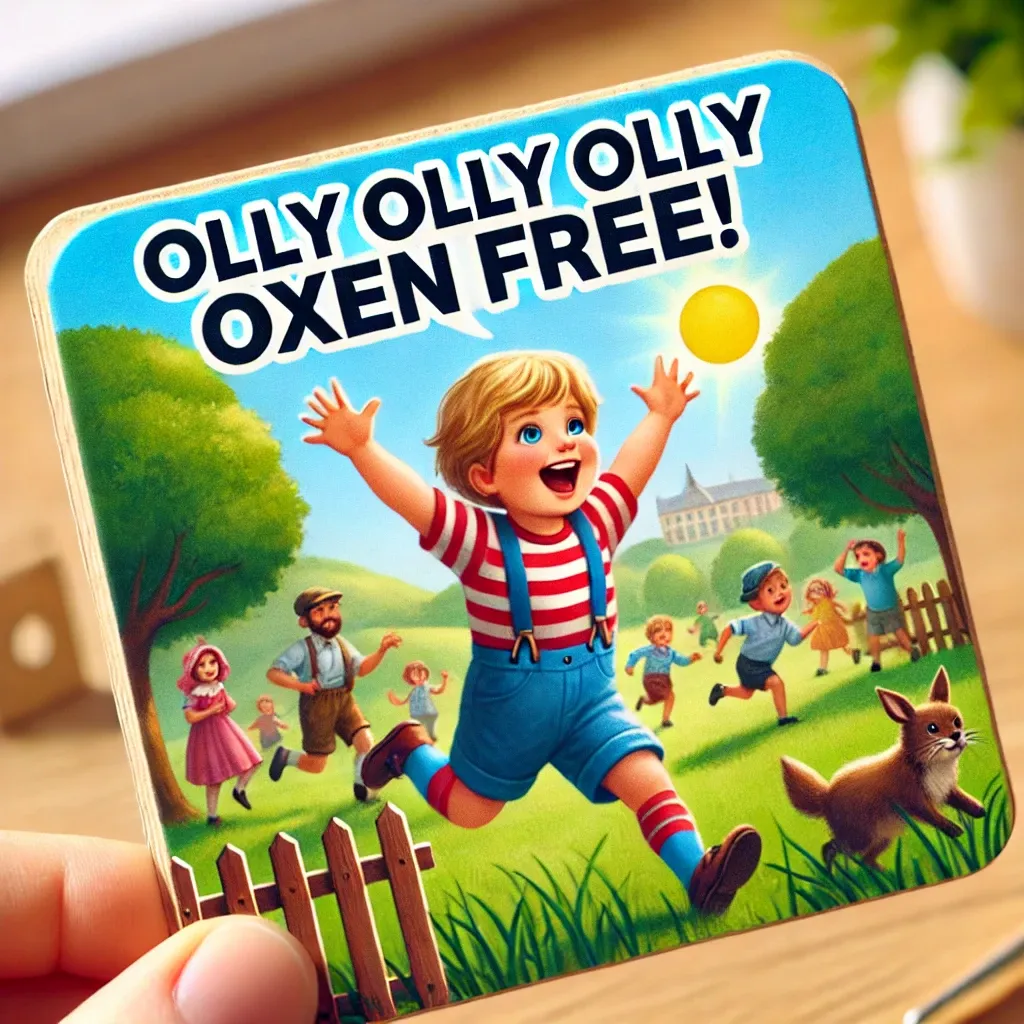What is the meaning of the phrase ‘olly olly oxen free’?
The game is over and everyone can come out of hiding.
What is the origin of the phrase ‘olly olly oxen free’?
It’s hard to determine exactly when the phrase ‘olly olly oxen free’ came to be used, it could have been the 1900s or it could have been earlier. This is because such phrases for children’s games tend to be passed down verbally from one generation to the next.
The phrase is most often used for games of hide-and-seek, which exist in many different cultures. A game that has likely been played for many centuries.
Looking through the evidence of its use, it is quite likely that the phrase is a mutation of a German phrase. Namely “Alle, alle auch sind frei” which, when translated, means “Everyone, everyone also is free.”
There are a few other potential explanations for the phrase’s origin however, which is that it’s a mutation of the combination of two other phrases from other languages. Namely “Allez, allez, in kommon frie”. The “allez, allez” is from French and is pronounced “all-ay, all-ay” and means “go, go” Meanwhile the “in kommen frei” was a phrase popular in Dutch/German New York and Pennsylvania and meant “come in free.”
What are some notable uses of the phrase ‘olly olly oxen free’?
The phrase ‘olly olly oxen free’ appears in children’s literature as a nostalgic reference to childhood games. For example, in “Ramona the Pest” by Beverly Cleary, the phrase is used during a game of hide-and-seek.
It has also appeared in the long running TV show The Simpsons, and in the 1988 film Big, starring Tom Hanks. There’s even a song called “Olly Olly Oxen Free” by Amanda Palmer and her band The Dresden Dolls that uses the phrase to convey a theme of freedom and release.
Today you can find the phrase ‘olly olly oxen free’ in console games such as Halo: The Fall of Reach, Halo: First Strike and Tom Clancy’s Splinter Cell series.

